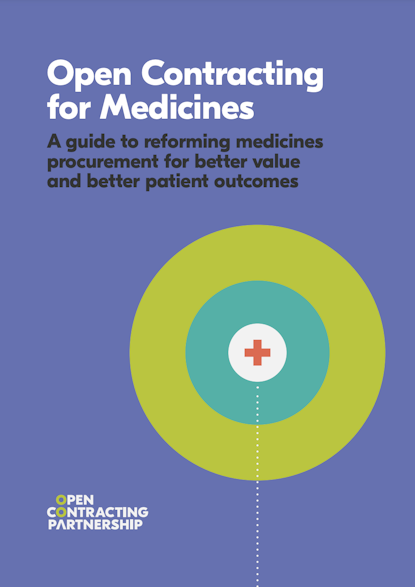Open Contracting for Medicines
By: Open Contracting Partnership, Transparency International Global Health
Published: 2023
Open Contracting for Medicines
By Open Contracting Partnership, Transparency International Global Health

This quickstart guide collects tested strategies that can help every government improve its procurement practices across the full cycle of procurement: from quantifying needs, to identifying suppliers, to managing the tender and bidding process, to ensuring quality medicines, and monitoring the performance of contracts.
Public procurement of medicines and medical equipment matters – making up 30% of health budgets. They are a key requirement to achieve the United Nation’s Sustainable Development Goal 3.8 – Universal Health Coverage.
At the same time, four of the ten leading causes of inefficiency in the health sector are procurement-related, according to the World Health Organization. Healthcare procurement is often poorly done, involving lots of paperwork and very little competition, market intelligence or effective planning. The market is dominated by huge asymmetries of information; governments are far too often price-takers rather than price-makers. In low- and middle-income countries, prices for basic generic medicines can far exceed prices in high-income countries.
The profound challenges with governance and corruption in the health sector were exacerbated by the COVID-19 pandemic which added unprecedented strain on already fragile systems. Rather than seeing progress towards universal health coverage, we have actually witnessed 1 billion people fall behind.